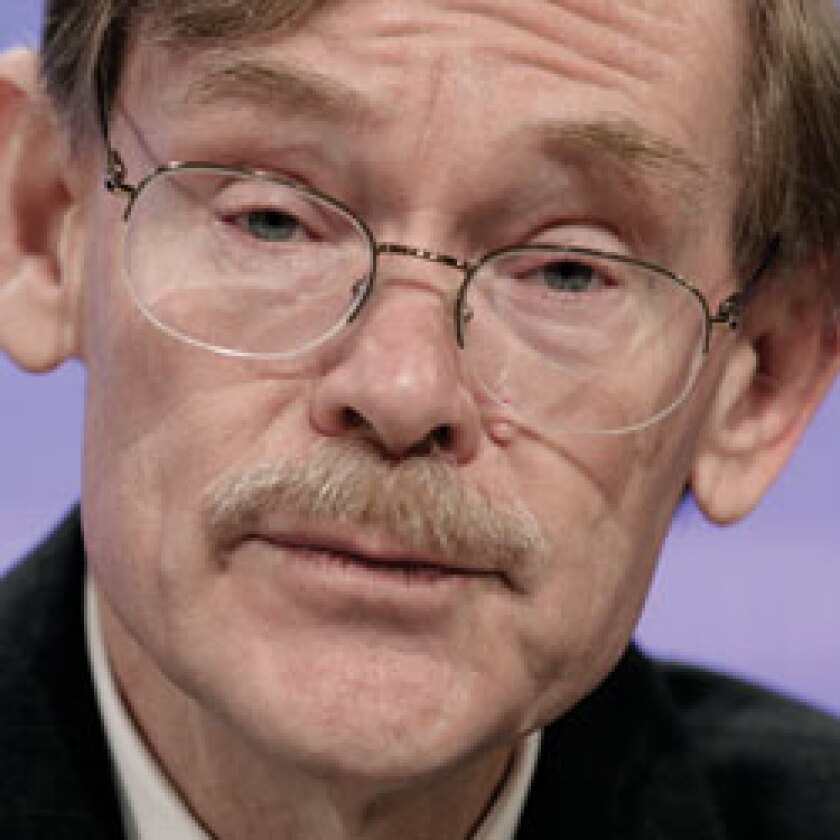The race to become the World Bank’s next president looks set to spark a diplomatic row, after the current chief hinted that the US would not give up its right to appoint his successor.
Robert Zoellick suggested that the US would sacrifice the World Bank job only as part of a deal that saw an American take over another strategic or economic multilateral body.
Zoellick, whose first five-year term expires in June 2012, declined to rule himself out, telling Emerging Markets that he would not decide whether to apply for a second year until the New Year.
He said he had succeeded in increasing the number of women in senior management positions at the Bank ,and pointed to his personal access to senior members of Congress who have control of the purse strings for US funding of the Bank
In 2009, when the G20 said that the appointments should in future be made through an “open, transparent and merit-based process”, hopes were raised of an end to the unspoken rule that the Bank job goes to a US citizen and the IMF to a European.
But those hopes were dashed this year when IMF shareholders, led by the US and European countries that hold almost half the votes, backed Christine Lagarde to succeed fellow French national Dominique Strauss-Kahn.
Asked by Emerging Markets whether he believed next year would see a president from an emerging or developing country, Zoellick said it was important the US played a “larger role” in multilateral institutions.
“I have spent some 30 years of my professional life trying to encourage the United States to play a larger role in multilateral institutions – they may be the World Bank and the IMF, they may be the WTO, they may be NATO,” he said.
“I think it is a good thing for the United States in some of these institutions to have leadership roles because ... even in the midst of these annual meetings, I have been working with Congress to try to build the financial support, and it helps to be able to communicate the perspective of a multilateral institution,” he said. “So, again, I think this is actually a good sign.”
In a remark that will raise the idea of a global deal, Zoellick added: “It may or may not be the World Bank, but there are politics involved with a lot of these choices, and you haven’t seen a US head of the UN or WTO or IMF and others, so I just think it is important the US stay engaged in multilateral institutions as well.”
Independent observers believe the decision will hand President Obama a dilemma. Lex Reiffel, senior fellow at the Brookings Institution in Washington, said Obama should open up the process, rather than spark a partisan battle by either endorsing Zoellick –a Republican appointee – or nominating a Democrat replacement.
“Let’s hope Obama does not feel forced to use the presidency as a bargaining chip with Congress. It would be the worst possible outcome for the United States in the long run,” Reiffel said.
An alternative would be to make one of the three managing directors – Sri Mulyani Indrawati from Indonesia, Mahmoud Moheildin from Egypt, or Caroline Anstey from the UK – acting president, to avoid the US electoral cycle.
Indrawati and Anstey declined to comment. Indrawati told Emerging Markets: “It’s up the shareholders to see what is the best choice for the president that will serve the Bank. The world has changed and it is still a dynamic environment.” Anstey told Emerging Markets it was a “decision for shareholders”.
South African finance minister Pravin Gordhan told Emerging Markets the G24 group of emerging and developing countries supported the G20 commitment. “I suppose democracy arrives over a period of time,” he said.
